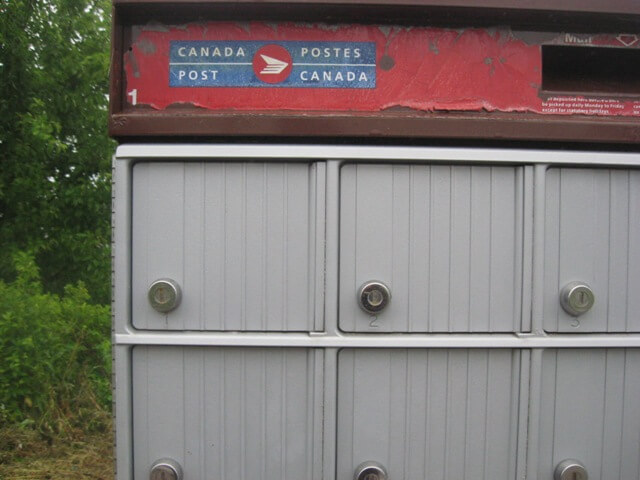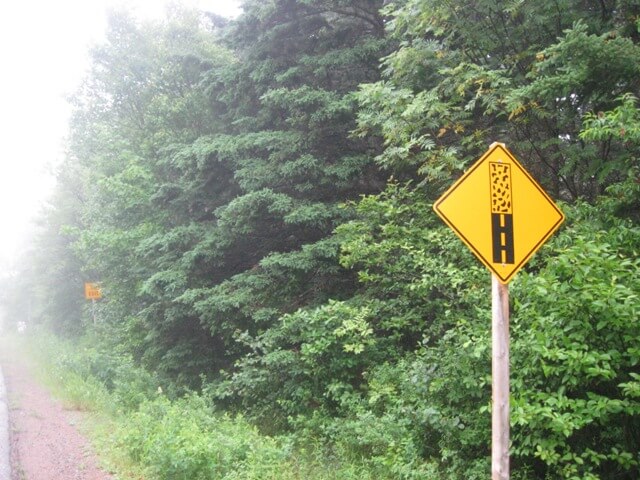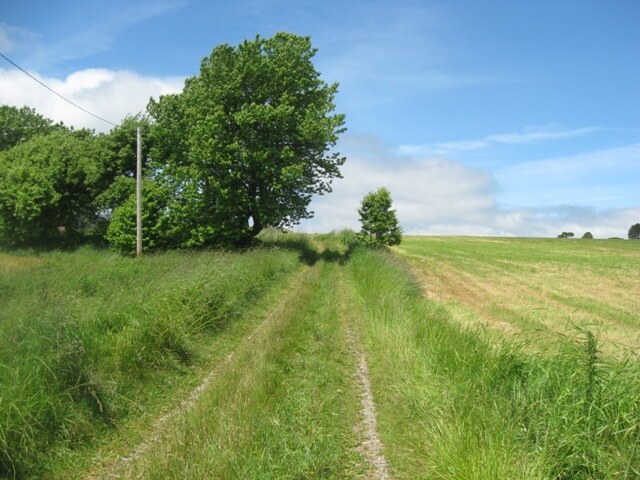“Why should we care if rural communities live or die?” Kate Oland asked recently.
I do care about what happens to rural communities, but I find that when I think about the life and death cycles of these human settlements nestled between mountains or in valleys, or speckled on the side of the ocean, out in the rural landscape, I think of those time-lapse videos of clouds you see sometimes, where the clouds gather, recede, tumble and spin in sped-up motion. Come, and go.
In my imagination, it’s like I can see us from above – groups of humans gathering, perhaps like ants, in one place, building houses and creating a town or a farm and going about our business, then quickly, one by one, leaving, and gathering elsewhere. This pattern repeats itself over and over, across continents. There is a rhythm to it.
From this view, a small town or a rural community’s changes over time feel natural to me, they feel OK. They feel part of a greater whole, an organic whole. This or that small town might be shrinking, but all things come to an end. This is normal. This is natural. Just like a garden in the fall succumbs to frost.
BUT. I slow the video down, back to normal. I bring the perspective in close, no longer looking down from above. I remember that I am here. I live here, spend my breaths here, wake up in the morning here, go to sleep with my lover here, listen to the wind here. I know this landscape and I love it. I want to continue to live here.
And I am a citizen of a country, of a province, and of a county, and my life and my voice are just as valuable as those who live in the cities within these same jurisdictions. Right? I mean, why would one human being’s needs be more important than another’s?
But, not really, because although there are many rural dwellers still, the rural communities are hurting. Resources are cut. Policies are made to reflect other realities, not this one. People leave. They feel alone, they feel the pinch of gas prices, the loss of their friends to other places, and they leave.
Part of the beauty of rural is the quiet, the lack of humans. This is a big part of why I love it, certainly. But humans need each other, and if too many leave, the rest will too.
Today’s blog post is part of a project called the “Atlantic Regional Panel,” which is part of the national Social Sciences and Humanities Research Council’s project Imagining Canada’s Future.
What is it? It’s a national effort by academics and the rest of us, which is “focused on identifying the social science and humanities knowledge and capacity needs for addressing emerging and complex challenges facing Canada in the coming 20 years.”
In other words, the social science academic community wants to know what the issues are going to be in the next twenty years, and what they can to do help, what research they can do. So they approached me as part of eight bloggers across the Maritimes to contribute posts, to help reach people beyond the academic community. That means you – as a reader of this blog – are now part of this project, and you can contribute ideas by filling out a questionnaire. The topic they assigned me to write about was “rurality”.
When I stop and think about “rurality”, and start to prepare thoughts, my instinct is to start by identifying the issues. You know, draw up a list of the usual suspects, like long distances between services, and depopulation.
But, I would humbly suggest that we move beyond identifying the issues – having group talks, workshops, think tanks. We KNOW the issues. We could sit, and talk about them, from now to eternity.
It is time to do something about them. And the doing has to come from all levels. From me personally, and you personally, to families, then to businesses, to community groups, to governments (if they can).
The problem facing us is twofold:
1. those in power don’t (seem to) care all that much about the rural areas, not the way we who live here do. They simply don’t know. It’s not on their priority list, they have other priorities. This may always be the case.
2. those in power only have a certain, relatively small, amount of power, and no-one actually has power over things like oil, history, and the movement of people to where the resources are. These things are beyond human control. (but, we individually have some control over how we react to them.)
I think people in our rural communities can easily get overwhelmed by the question “So what do we DO about this?” We want a solution. We want to know what the plan of action is. But there isn’t a simple plan of action to be had.
Back to Kate: “We need the wisdom of those who live cheek by jowl with the land and who have learned humility in the process. We need the monk agriculturalists and other small farmers whose daily toil is a testament to innovation and creative thinking. We need a backup plan in case the technocrats fail us, and in case alternatives to cheap energy are slow in coming. The surest route to survival in an ecosystem is via biodiversity.”
In other words, don’t just try one solution. Try all the ones you can.
And if you were keeping your voice quiet, maybe now is the time to raise it.
I for one am waiting to hear from you. And so is the Atlantic Regional Panel.
Offer your thoughts on rurality and other important challenges and opportunities facing Atlantic Canada at : http://atlanticregionalpanel.wordpress.com/questionnaire/





Leah,
I’ve been country most all of my life. My father was a city man…I thought, but late I learned he came from a family homestead.
Any level of government coming to me and saying “I’m from the government and am here to help.” is a positive statement that they are here to create problems where none exist, create more “rules” where none are needed. And guaranteed to get me to run and run fast. AWAY! Most country folk I know are much more interested in the government simply shutting their doors and going away. We want to be left in peace without “Big Brother” looking down his nose or over our shoulder at what we do. To assume the goverment 1. cares about us, 2. will do anything positive for us or our community, 3. will not clamp the heavy hand of more “rules” on us is naive to the utmost degree.
The goverment is one thing and one thing only. It is the use of force to make sure we all comply with its “rules.” Working hard to preserve itself and expand its grasp is what goverment at all levels is all about. IF they DO want to help, tell them to shut up and go away!
Winston
Well, that’s certainly ONE way of thinking. And I agree with elements of it, for sure. (Probably more and more, the older I get.)
I suppose Leah wants us to get political, by the nature of the post, so I’ll say this in direct response to Winston: government is not the one thing which you suppose it to be. Government is there to provide a stable framework within which we can live our lives in a fruitful and socially cohesive way. Do you want laws? Do you want protection when you’re weak? Do you want to avoid anarchy? Thought so. If you think that government is not providing help, you need to make your voice heard. Government is not going to go away. Sure, there can be bad government and good government, but that’s the point, there *can* be good government, and it’s your democratic right to ask it to do what will help you and your community. Telling them to shut up and go away really isn’t going to help you or anyone else.
Meanwhile in response to Leah, if the people in power pay more attention to urban issues, that’s simply because these affect a far large number of people. I don’t see that this response is necessarily out of proportion (hard figures would be interesting although no doubt open to interpretation). That’s not to say that rural issues should get ignored, of course.
Yes, I’ve heard the argument “but urban issues affect more people” a lot. I’m questioning it – not because I don’t think it’s valid, but because I don’t think it’s the ONLY way to see things, as only a numbers game. What about the individuals that make up both city and rural populations?
My throw-away remark about figures being open to interpretation is pertinent here. You can’t get away from the fact that there are more urban people than rural (although in passing I would wish to avoid trying to enforce a hard rural/urban divide… despite what Kate says about not keeping cows in cities, it *is* possible to be agriculturally productive in a city, individually on a small scale of course, but there are urban greening movements around, including one local to me, which are promoting the idea that a city needn’t and shouldn’t be just a concrete jungle but can also produce food communally… but I digress)… back to urban/rural… more people in cities means many things: (1) more voices to make claims on the available resources; (2) lower per-capita costs of supplying/supporting infrastructure (cheaper fuel, cheaper healthcare, you name it) which, however much we would wish it otherwise, is a big factor in politicians’ decisions about how to divide up the pot; (3) higher rates of crime, anonymity and disconnectedness (feelings of not belonging). Just plucked a few things out of the bag there. The point is how you measure things. It *is* a numbers game, but it depends on which numbers you look at. Economy of scale, or humanitarian well-being? Both are justifiable, but where do we strike a balance? The tendency is always to look at the things which we can more easily measure. This leads for example to urban sprawl, as the ostensible cost benefits of providing more houses for more people outweigh the hard-or-impossible-to-measure benefits of protecting our urban-fringe green areas (another local issue here).
Individuals? Sorry, not important in the grand scheme of things, whether they’re urban or rural. That’s merely an observation, not a recommendation.
Overall I agree with your concerns, but I don’t see any alternative to waving hard facts and figures under the noses of the people in control. Fight them on their own ground.
Dear me I do witter on sometimes.
And if I may respond a little further directly to Leah: you say “no-one actually has power over things like oil, history, and the movement of people to where the resources are. These things are beyond human control”. Actually the movement of people to where the resources are is a *huge* part of the course of human history over, well just the last 100 thousand years or so 🙂 and is very much within our control. There is surely a useful clue here. To sustain rural life, you need to increase the availability and attractiveness and sheer economic utility of local resources. That *might* mean increases in “not nice” things like mining (although I would be the last to suggest that as a first resort) or it might mean greater tourism (although again that’s always a precarious thing to rely on, as you know from your seasonal employment) or it might mean investing *much* greater time and money in encouraging local non-farming industries (like Protocase… ok so they’re not strictly rural but one could easily sustain that kind of company in a completely rural setting). I haven’t yet read what Kate says but you quote her as saying “We need the monk agriculturalists and other small farmers”; well I think people need to get away from the notion that living *on* the land means having to make a living *from* the land. Small farmers are great and a necessary balance to the large-scale agricultural industries, but they needn’t dominate the rural landscape (economically speaking).
But I expect you’ve all been over this many times.
I guess what I’m saying is that the actual movement of great numbers of people is subject to so many factors that it’s not under any one person’s control. I guess technically it’s under “our” control as people, but that’s kind of like saying that if only everyone would just recycle, we could stop global warming. True in theory but kind of meaningless since it will never happen.
You’re absolutely right, though, that to sustain rural life, “you need to increase the availability and economic utility of local resources.” The question then becomes, which resources, and how to do it, and will that activity be able to happen for many years to come?
Only people who know the area can comment usefully on which resources and how, so I won’t even try that. What do *you* think are your local resources, either existing or potential, and how do you make them more appealing so that people either don’t move away or else maybe even *come* to the area? (I get the impression that the ones who come to the area right now are almost entirely merely *returning* after a long absence. There’s a negligible overall inflow.)
“Sustain”… well you need to take a good look at what the area is *capable* of sustaining. Maybe it’s not that much. Maybe you’ve got as many people as you can hope for already, and you’ll just have to struggle on. People don’t flock to cities out of perverseness, after all. They go because there’s more on offer. Well, more shiny glittery stuff.
Here is another view: http://www.fredoneverything.net/Race_Hucksters.shtml
Winston